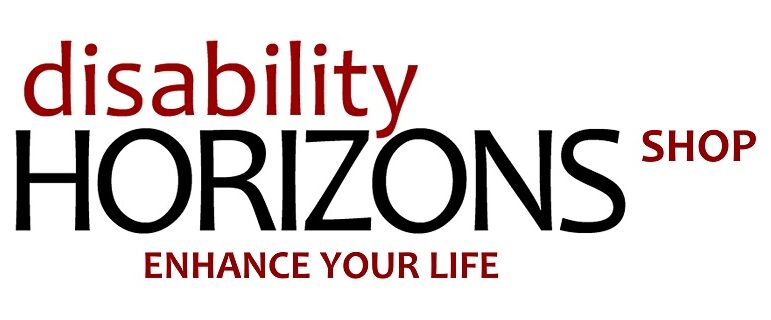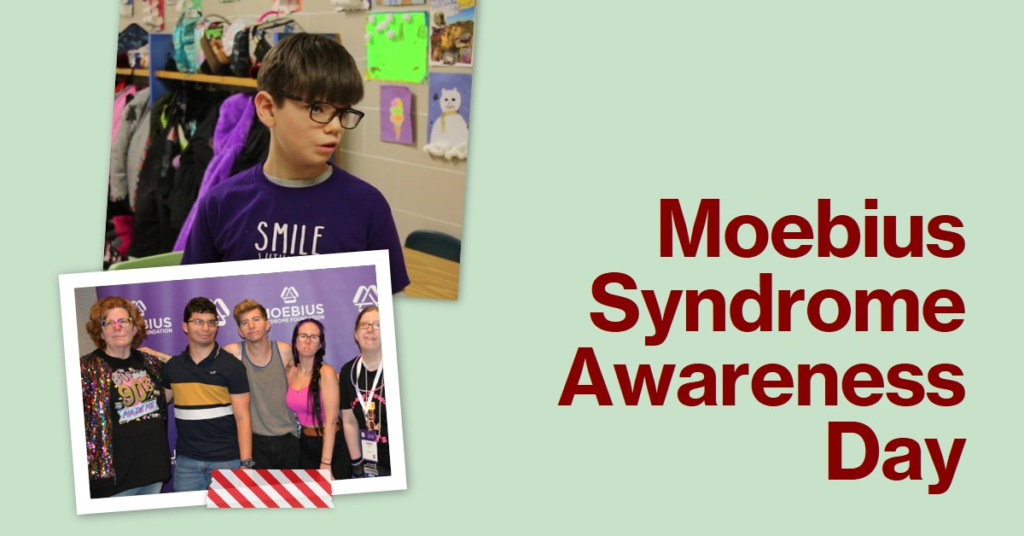Raising Awareness on Moebius Syndrome Day
January 24th is designated as Moebius Syndrome Awareness Day. This day seeks to raise understanding and visibility for Moebius syndrome – a rare neurological condition that affects the facial muscles and impairs eye movement and facial expressions.
Understanding Moebius Syndrome
Moebius syndrome is present from birth and is caused by the underdevelopment of the 6th and 7th cranial nerves. This results in facial paralysis, meaning a person with Moebius syndrome cannot form facial expressions. They have difficulty closing their eyes and mouths and often have speech difficulties. The impairment of eye movement also causes vision problems.
While the effects of Moebius syndrome can be socially and emotionally challenging, the condition does not impact intelligence.
Spreading awareness is important so individuals with Moebius as well as their families receive support and understanding.
One Man’s Journey Living with Moebius

“I celebrated my 50th birthday last year,” says Alex Barker who is a Consultant at AbilityNet. “Back in 1972 when I was born I was born with an extremely rare condition called Moebius Syndrome.” This rare disorder prevented him from being able to smile or show any facial expressions. He was also born missing some fingers and toes.
The lack of accessible information in the 1970s made things difficult for Alex’s family. “If you wanted to research information you had to go to a specialist library and spend hours wading through content trying to find information,” Alex recalls. Families affected by this mystifying condition felt isolated.
When the internet emerged, Alex recognized its potential for connection. “I decided that I would set up a website hosted on Geocities for people living with Moebius in the UK,” he explains. Gradually connecting with others around the world who shared this disorder, from Florida to France. “The internet was becoming so useful for people like me to connect with other people in the same situation,” Alex says.
One digital friendship with a woman from the United States blossomed into romance. “We got married in her family church in Lexington, North Carolina in November 2018,” says Alex. Their international love story brought increased awareness. “Our trans-Atlantic courtship got lots of coverage on the internet, and it culminated with the New York Times taking pictures at our wedding!”
Alex now uses his lived experience of disability in his work at AbilityNet. Read his blog on Voice Recognition Technology here.
Liam’s Story
 Other individuals like Liam Kraushaar also exemplify the resilience and positive attitudes of those living with Moebius syndrome. Despite facing difficulties with facial expressions and other abilities, Liam focuses on spreading kindness and enjoying activities like music. He wishes for understanding rather than judgment from his peers. Though he can’t smile conventionally, Liam’s inner joy and humour shine through.
Other individuals like Liam Kraushaar also exemplify the resilience and positive attitudes of those living with Moebius syndrome. Despite facing difficulties with facial expressions and other abilities, Liam focuses on spreading kindness and enjoying activities like music. He wishes for understanding rather than judgment from his peers. Though he can’t smile conventionally, Liam’s inner joy and humour shine through.
Supports for Managing Moebius Syndrome
While there is currently no cure for Moebius syndrome, certain aids and adaptations can help manage symptoms and improve quality of life.
Speech Therapy
Speech therapy is crucial for helping those with Moebius syndrome develop communication abilities. Because they lack facial expressions, they must use other tools like gestures, communication boards/devices, and amplification devices. Speech therapy focuses on oral motor skills, articulation, and improving vocal quality and volume.
Vision Aids
Many individuals with Moebius have vision problems like strabismus (crossed eyes) or amblyopia (lazy eye) due to cranial nerve damage. Glasses, eye patches, or prisms can help improve vision or force the eyes to work together better. Vision therapy also trains eye muscles and coordination. These aids are critical for allowing people to read, avoid depth misperception, and navigate safely.
Hearing Amplification
Some people with Moebius have conductive hearing loss related to underdeveloped facial muscles and bones. Hearing aids, BAHA bone-anchored devices, or cochlear implants may be used based on the type and degree of hearing difficulty. Amplification enables better speech, language, social and classroom engagement.
Orthotics and Prosthetics
Braces, splints, artificial limbs or digits can help accommodate missing or improperly formed bones and limbs often associated with Moebius. Club feet are a common characteristic. Orthopedic surgery combined with customized orthotics enables better mobility and function.
Emotional Support
Social skills training, counselling, peer/parent education, and behavioural therapy can help with emotional regulation, self-confidence, and social adaptation. Building a supportive community is crucial. While not a physical aid, emotional health care is an important part of management.
The right combination of therapies, assistive devices, surgery, and emotional support makes a significant difference in managing life with Moebius syndrome. Continued research, education and access to these services is vital.
Spreading Awareness for Moebius Syndrome Day 2024
Awareness days like Moebius Syndrome Day play an important role in educating the public, advocating for those impacted, and bringing hope for the future. Small acts of understanding and compassion from each of us can make a big difference.
Frequently Asked Questions About Moebius Syndrome
- Can People with Moebius Syndrome Talk?
- Despite the facial muscle weakness or paralysis, many individuals with Moebius syndrome can talk. The severity affects speech differently, with some facing challenges like trouble swallowing and frequent drooling.
- Is Moebius Syndrome a Disability?
- While Moebius syndrome can lead to developmental delays, most children catch up eventually. In some cases, there might be minor intellectual disability, but this is rare.
- What is Smile Surgery for Moebius Syndrome?
- Smile surgery involves transplanting a muscle from the thigh to the face to enable smiling. It’s a significant advancement in treatment, offering a new way for those with Mobius syndrome to express joy.
- What Drugs Cause Moebius Syndrome?
- Misoprostol use during pregnancy has been indicated as a possible cause. Research suggests certain drugs taken during pregnancy might increase the risk of the baby developing Moebius syndrome.
- What is the Life Expectancy of Someone with Mobius Syndrome?
- With proper care and treatment, individuals with Moebius syndrome can have a normal life expectancy.
- Why Can’t Someone with Moebius Syndrome Smile or Frown?
- The syndrome affects the facial muscles, leading to an inability to control movements like smiling or frowning. This is due to weakening or paralysis of these muscles.
- Does Moebius Syndrome Affect Intelligence?
- Most individuals with Moebius syndrome have normal intelligence, although there’s a somewhat increased risk of intellectual disability.
- How Many People Have Moebius Syndrome in the UK?
- Over 160 people in the UK are registered with the Moebius Syndrome Research Trust, indicating the presence of this community.
- Can People with Moebius Syndrome Laugh?
- Due to facial paralysis, people with Moebius syndrome can’t make standard facial expressions like smiling or laughing. This often presents psychological challenges alongside the physical difficulties.

